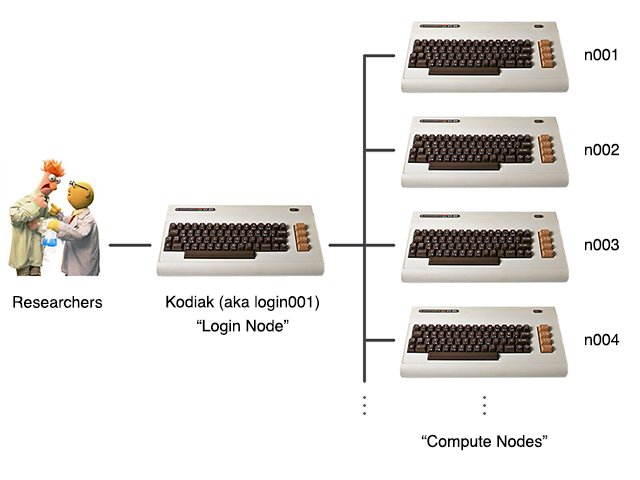Kodiak Overview
Kodiak is a high performance compute cluster, consisting of many connected computers, called "compute nodes" working together so that they can be viewed as a single system. When you log in to Kodiak, you are actually logging into what is called the "login node", "head node", or "admin node". The login node is where you do your interactive work such as editing files, compiling your programs, etc. The compute nodes do any actual resource intensive work.
The login node is named "login001" and the compute nodes are named "n001", "n002", etc. By default, the host name is included in your command line prompt.

Kodiak's regular compute nodes are dual-socket 18-core systems. Each node has a total of 36 cores or processors and can run 36 programs simultaneously. There are other types of compute nodes as well, e.g., NVIDIA GPU systems.
Although there are several different file systems on Kodiak, the two that you are most likely to work with directly are /home and /data. The /home file system is the default location for Kodiak users' home directories. Your source code, compiled programs, documentation, etc., should be stored here. If your username were bobby, your home directory would be "/home/bobby". Two common abbreviations for your home directory are "~" and the environment variable "$HOME". The /data file system, which is much larger than /home, is where you should store your research data. Like your home directory, your "data directory" is "/data/bobby" and has the abbreviation $DATA. Both file systems are accessible from both the login node and compute nodes.
You will need an account to use Kodiak. Kodiak accounts are available to Baylor faculty, graduate and undergraduate students. Accounts are also available to non-Baylor individuals who are collaborating with Baylor researchers. To request an account, contact HPRCS. Students and non-Baylor collaborators should have their faculty sponsor request the account on their behalf.